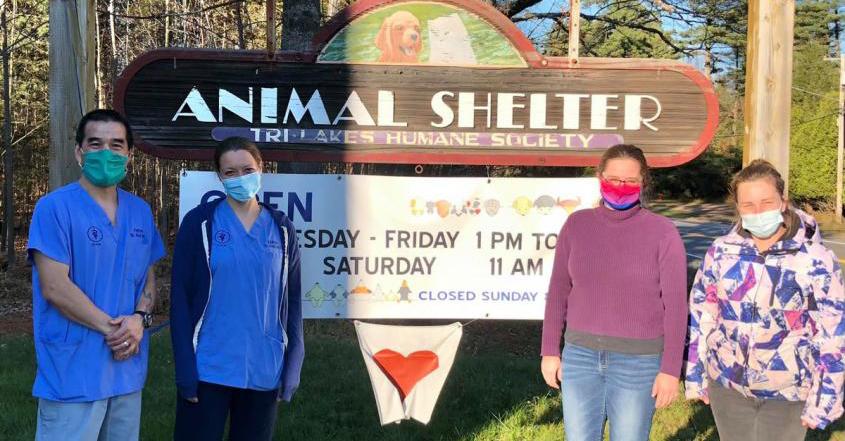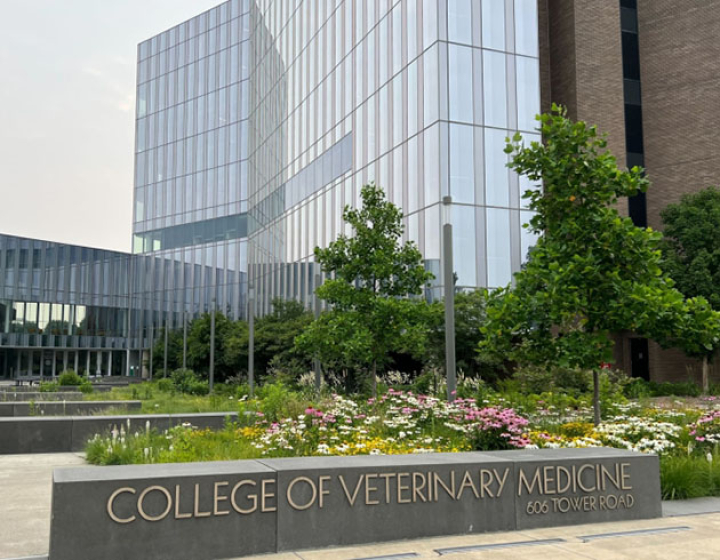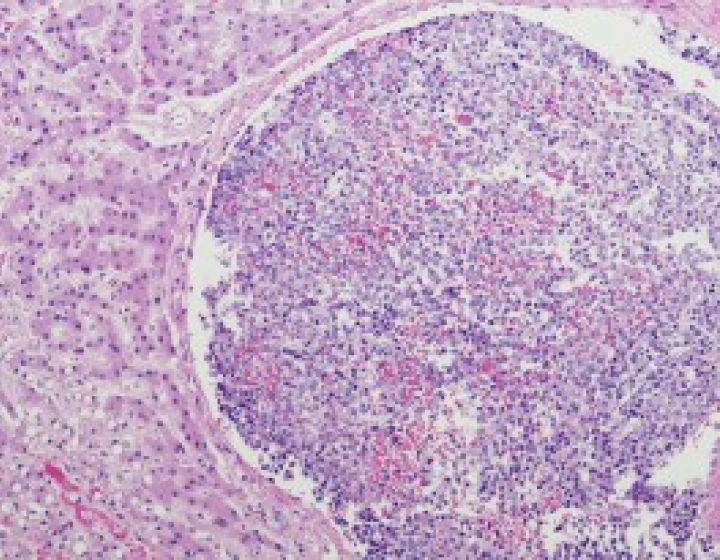Near and FARVets: College’s veterinary non-profit expands program offerings throughout New York animal shelters
It’s the end of a long day of spay-neuter procedures at the Lewis County Humane Society. “Take On Me” by the band A-HA spills over the loudspeakers. Dr. Paul Maza, senior lecturer in anatomy, is a fan of ’80s classics, which have become the soundtrack for the FARVets team during clean-up. The veterinarians, students and humane society staff make quick work of washing and packing with ’80s jams to speed them along.
For veterinary student Ivanka Juran, D.V.M. ’24, these were some of the most memorable moments of her time spent with FARVets. “It was meaningful to me at the end of the day to see all the carriers with animals in them ready to go home, and just realizing that our small team had completed dozens of surgeries in a few hours,” Juran said.
FARVets is a non-profit run through the Cornell University College of Veterinary Medicine by Maza and a board of directors. It’s most well-known for its longstanding international programming, working with partners across the globe since 2010 to address animal overpopulation through spay-neuter clinics and vaccinations, to provide pet health and wellness education and to offer international experience to veterinary students. The team also offers similar programming closer to home, and expanded these offerings when the COVID-19 pandemic prevented any international trips in 2020.
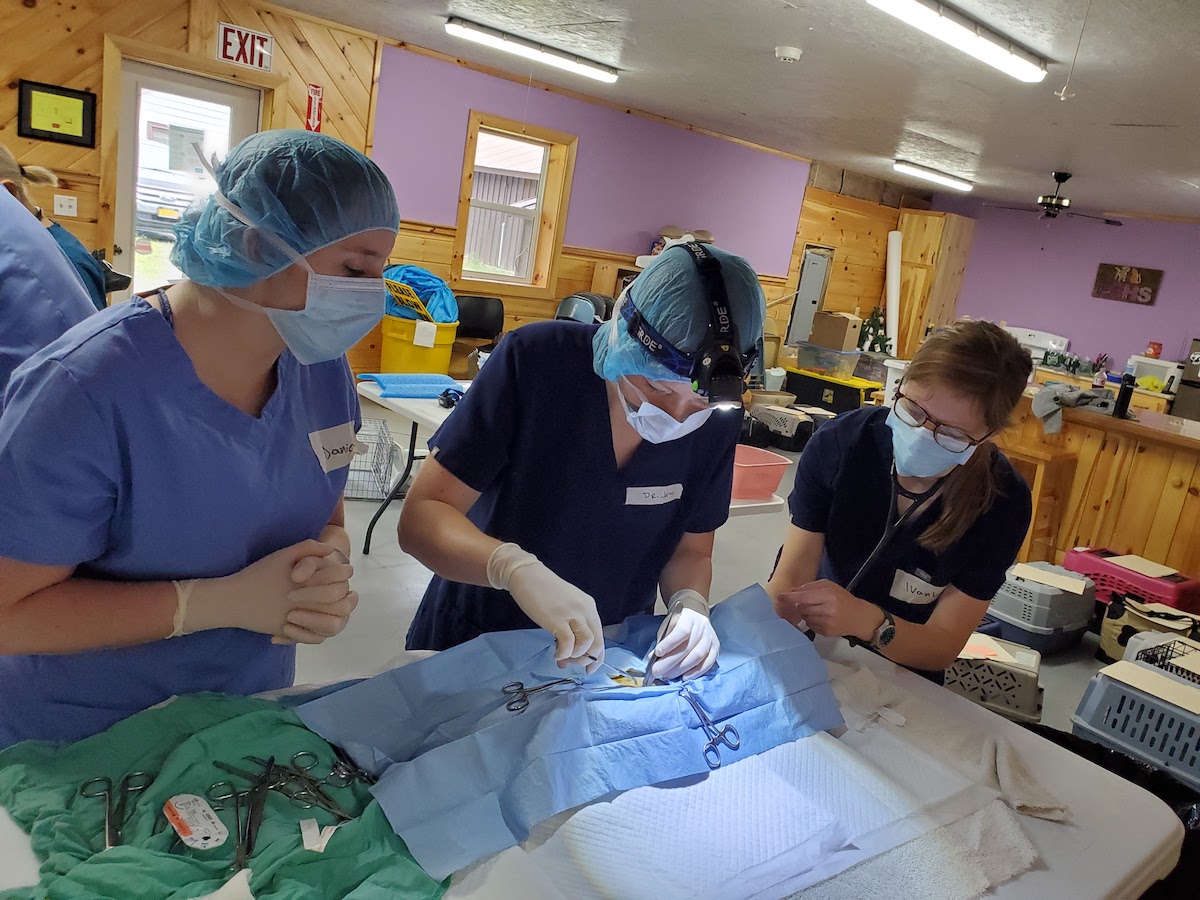
“When the pandemic hit, we knew we wanted to continue these activities for students even if we couldn’t travel abroad, so we increased FARVets offerings to local domestic partners and formalized our training process,” Maza said.
FARVets has been active in the Finger Lakes Region of New York since 2014. The group has provided mobile spay and neuter services for feral cats at farms, schools, shelters and more, training students in the process.
“We’ve always done local trips with students,” Maza said, “but they were not as structured as our clinic trips abroad.”
This year, in lieu of being able to travel internationally, FARVets extended its reach in the state, forging partnerships with animal shelters from the Adirondacks to the Southern Tier. The Humane Societies of Chemung County, Herkimer County and Lewis County, the Tri-lakes Humane Society in Saranac Lake, the group For Pets’ Sake, as well as various SPCA locations, are just a few of the recent additions to the FARVets roster. The team was able to sterilize approximately 80 cats at these locations over the summer.
“We miss traveling abroad, but recognize that without travel restrictions, we might never have had the time or opportunity to build relationships with all the new partner organizations we work with in the Adirondack Region,” said Jami Landry, D.V.M. ’17, who has worked with FARVets since 2013 and is on its board of directors.
Fifteen veterinary students and three pre-vet students participated in this year’s clinics, approximately the same number of students who would normally have gone abroad. Students from any class year in the Cornell veterinary program can apply. All participate in physical exams, vaccinations, and administering and monitoring anesthesia. First- and second-year veterinary students assist with spay and neuter surgeries. Those in their third- and fourth-years conduct the surgeries, all under the supervision of Maza, Landry and other veterinarians.
Juran was pleased to find she could apply things learned in classrooms to the real-life scenario of a clinic. “It was so cool to be able to perform my own intake exam on a patient, deem it healthy enough for surgery, calculate and draw up its anesthetic medications, administer them and then assist in surgery,” Juran said. “It really let me be part of the whole procedure from start to finish, which is something I’d never been able to do before.”
Maza was one of Juran’s lecturers and tutors early on in the program at Cornell. “I loved learning from him in a classroom setting, but in FARVets I was literally standing across the operating table from him, assisting him as he pointed things out and taught me with a patient right in front of me,” Juran said. “It was an amazing experience that I definitely consider one of my highlights of vet school.”
FARVets plans to continue working with its New York partners regularly, even when their international trips resume. “It’s also important to us to have options available for students who can’t travel abroad, even when international travel is back to normal,” Landry said.
FARVets Academy
This year, Maza and the board of directors also launched the FARVets Academy, an online course filled with training and resources, for both domestic and international trips.
“We first delved into the concept of virtual content by hosting a series of virtual ultramarathons to raise money for rescue groups we work with abroad,” Landry said.
As teaching in person was not possible at the start of the pandemic, Maza, Landry and fellow board member Katie Emerson, D.V.M. ’13, created the virtual lectures and resources that comprise FARVets Academy. Students who plan to participate in clinics enroll in either the domestic or international courses, which include lectures, labs and coursework. They cover topics like physical exams, vaccination protocols and surgery. Teams going abroad cover additional topics like travel safety and cultural sensitivity. When the FARVets Academy launched its pilot program this year, the group also created an internal webpage devoted to the academy and its resources.
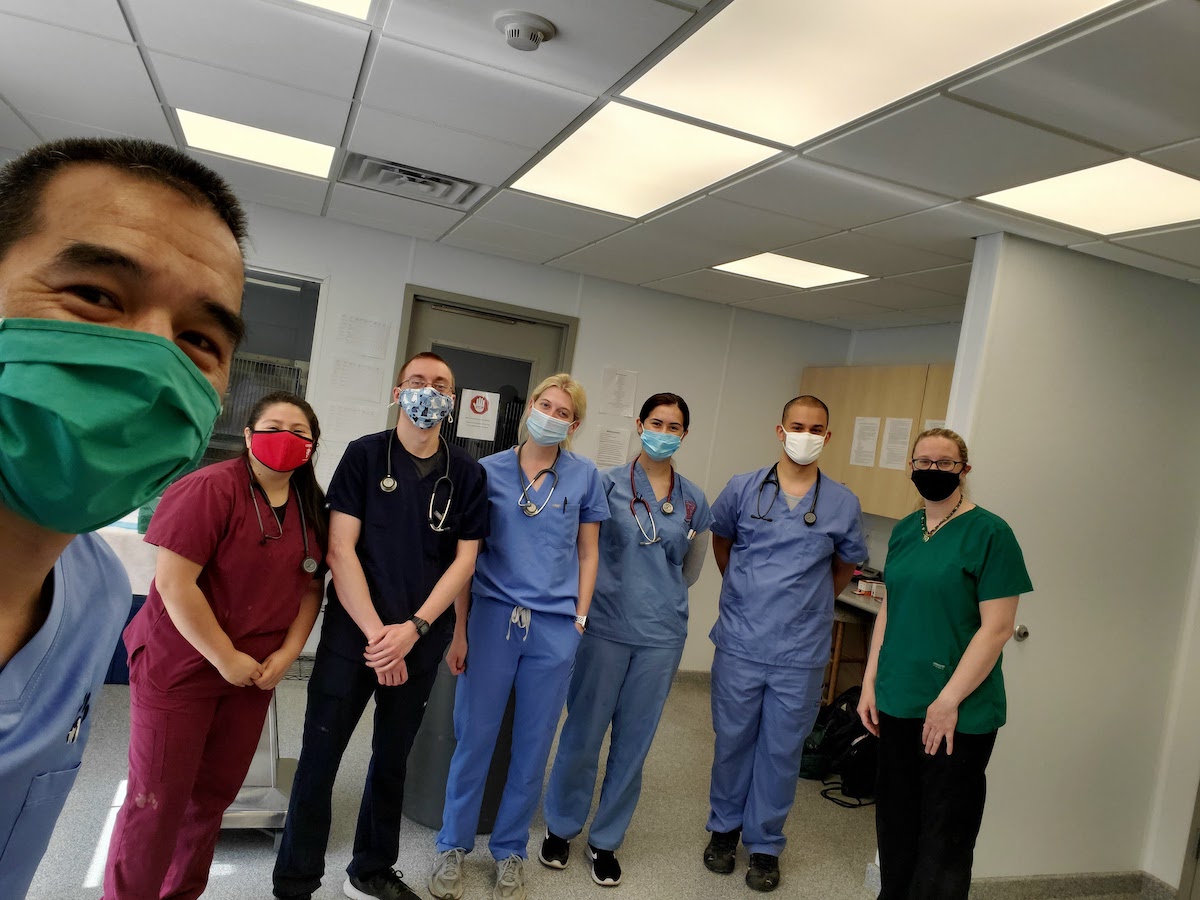
“We divide the coursework up into different days, with three or four lectures each day, culminating in surgical techniques, videos and instruction on what to expect when we’re doing surgery,” Maza said.
Previous to the academy, the FARVets leaders would meet with teams before going abroad to discuss these topics in detail, and a review a written manual for students. The academy augments this by providing an extensive resource students can reference and review.
“When Dr. Maza opened up the FARVets Academy, I was excited to participate even if it didn’t look like a typical FARVets trip,” said veterinary student Kim Zullo, D.V.M. ’24.
Zullo especially appreciated lectures about core vaccinations. “After working in a small animal general practice, I was familiar with the core vaccines, but I never knew what they protected against and what the diseases looked like if the animals weren’t vaccinated,” she said. “The lectures given in the academy completed the picture for a concept that is ubiquitous throughout veterinary medicine.”
As pandemic restrictions evolved, the program was able to involve more students in its visits to shelters, and eventually structure the clinics as the surgical lab component of FARVets Academy.
After the success of its pilot program this summer, FARVets has plans to expand academy offerings in the future. Because the lecture portion is available online, students from other universities and regions of the country can participate, and the team hopes to share the curriculum with their partners abroad.
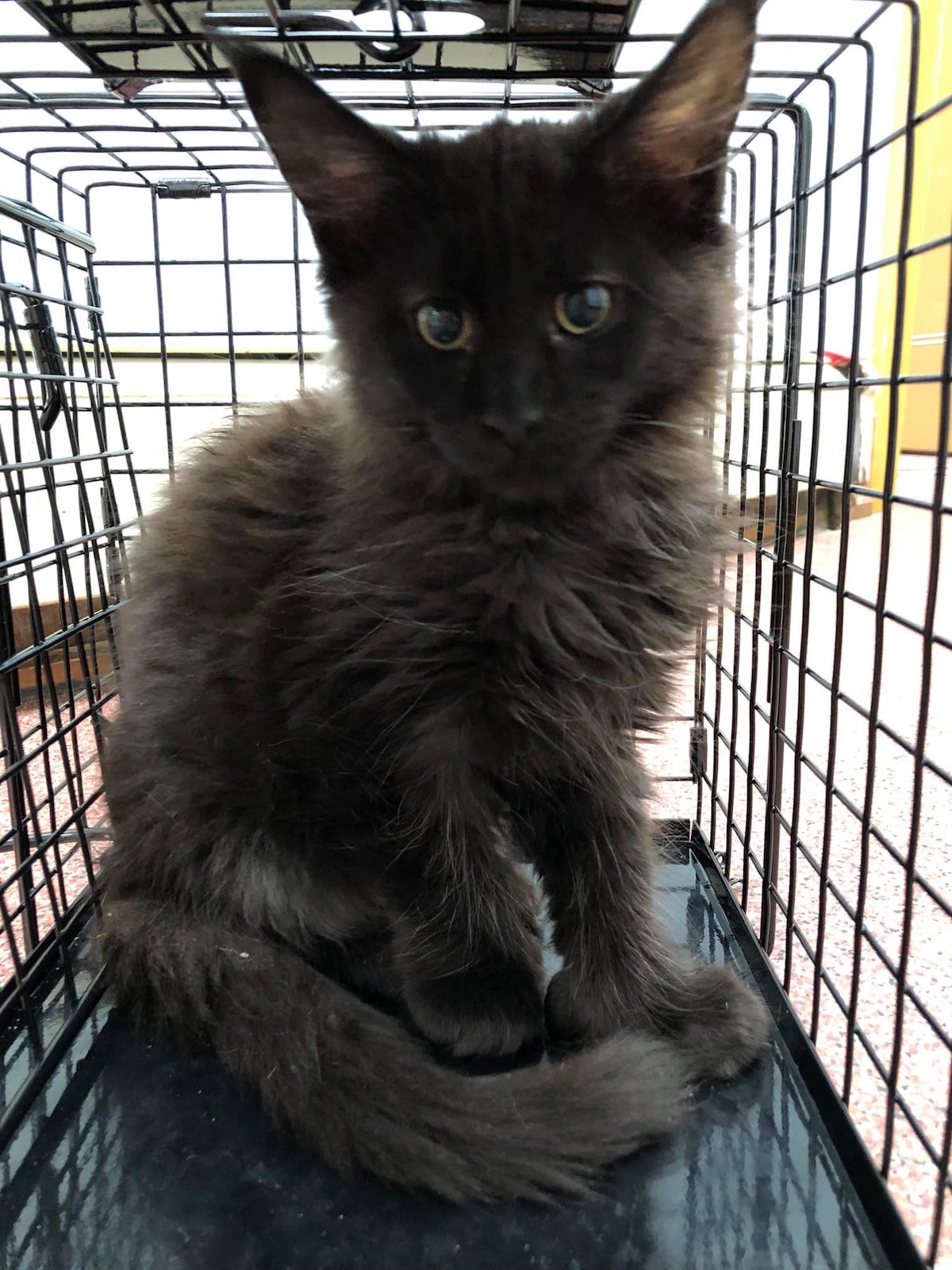
“It’s a great platform to make sure students are comfortable and prepared for the skills they will master during the actual field clinic,” Landry said.
In terms of services offered in New York, Maza plans to hold vaccine-only clinics to reach even more pet owners. And although forecasting the long-term course of the pandemic is impossible, Maza monitors both CDC and U.S. State Department travel advisories, ready to team up with international partners as soon as it’s safe travel again — likely first to Guatemala or Honduras, where FARVets has an established presence. He and Landry are planning to lead a team to Sierra Leone in March, which would be the group’s first partnership with small animal welfare organization on the African continent.
Said Maza, “We go to these places in New York and around the world, and no matter how far we travel, we see a like-mindedness among people who really care for their pets and for their community.”
Written by Melanie Greaver Cordova
An abridged version of this story also appeared in the Cornell Chronicle.



